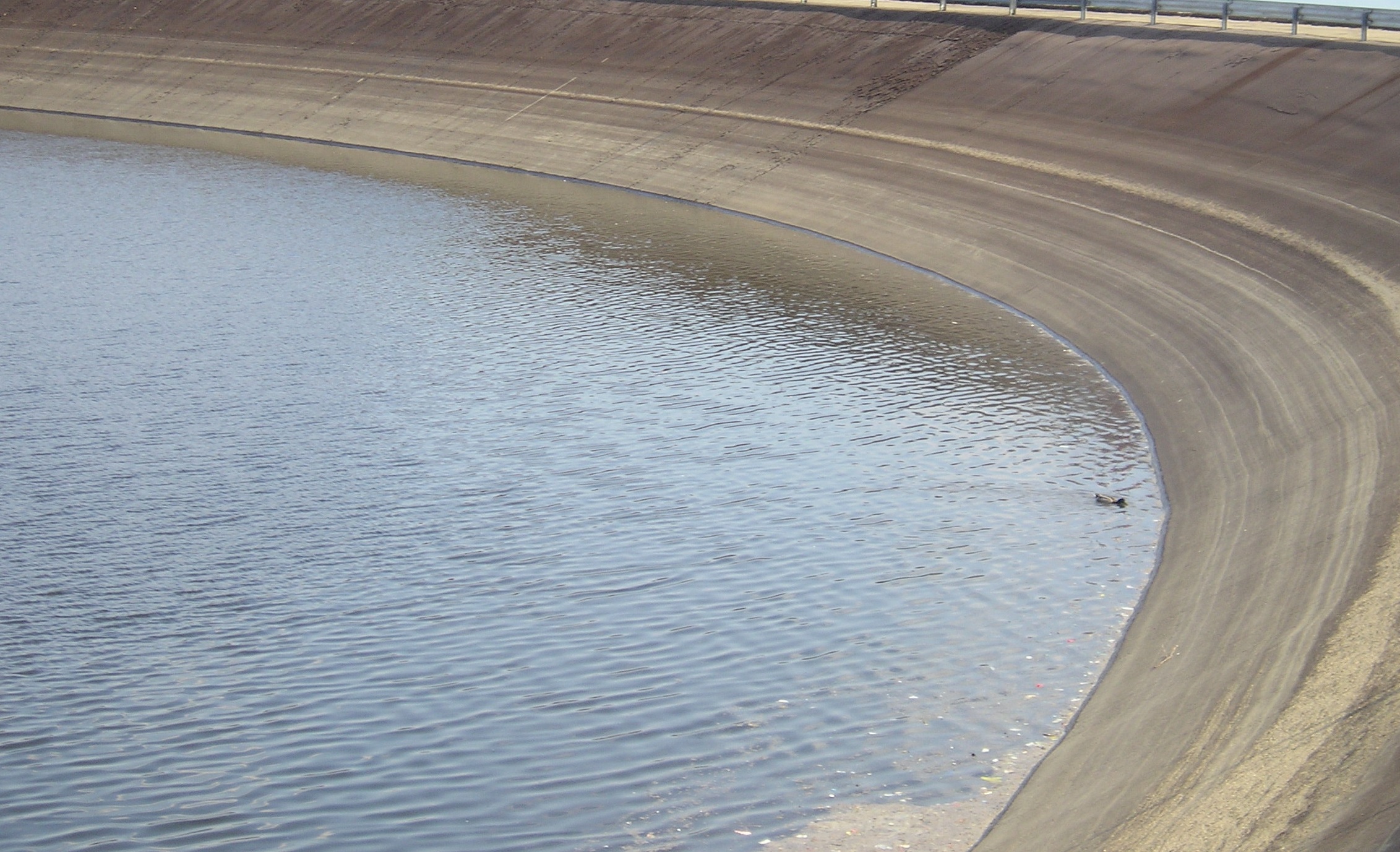In the news: Cranfield academics on the UK’s water supply
30/08/2022

The last month has seen unprecedented media coverage concerning the ongoing drought and the effect on our water supply. More recently the news has looked at how water companies manage their supplies, and how rivers, wildlife and even housing have been impacted.
In Stockholm this week, delegates are gathering for the World Water Week conference – an international gathering looking at global water issues including food security, health, agriculture, technology, biodiversity and climate.
Academics from across Cranfield University – many present themselves at World Water Week – have been sought after for expert opinion and commentary on the issues facing the water industry. We’ve included a selection of contributions below.
In an article for The Conversation, Dr Dan Evans outlines five ways that we can stop heavy rains washing away soil, and Dr Heather Smith contributed to a discussion on water systems on Radio 4’s The Briefing Room, and was interviewed live on Sky News to talk about how consumers could reduce their water usage. Dr Evans also appeared on Sky News to talk about the importance of soil systems and the impact of the prolonged drought.
Paul Jeffrey, Professor of Water Management at Cranfield University , spoke with the i newspaper, the BBC and The Times about water systems and his view that that while “important progress is being made on reducing leakage, significant investment is still needed to bring leakage levels down to what the regulator considers reasonable.”
Professor Tim Hess was interviewed by The Economist about multi-sector reservoirs (MSR), which supply water to businesses, farms and consumers, and are common in arid nations. Profession Hess said he believes MSRs “may be a way to get new reservoirs built where one group of users would not have justified the investment.” But he added, MSRs work best “when wildlife, farmers and the public need water at different times; in this case they will all need extra water at the same time.”
Professor Hess appeared on the BBC, Radio Five Live, LBC and Sky News to talk about the current crisis and co-wrote an article for The Conversation with Ian Holman, Professor of Integrated Land and Water Management, looking at the difficulties of the dry weather for farming in the UK.
Jerry Knox, Professor of Agricultural Water Management, speculated that farmers may end up choosing to sacrifice some crops in order to fully water others. As hosepipe bans loomed, his expert view was quoted in articles by the Guardian, The Times and the Daily Mail.
In conversation with the Financial Times, Prof Knox said there may be merit in a more flexible approach when it comes to the rules that govern water that farmers can source under so-called abstraction licences (This enables them to take water from rivers, streams, drains and boreholes).
Prof Knox said this would allow farmers to “take water during periods of high river flow for storage and use [it] later”, adding: “This will facilitate water sharing and reduce summer pressure on water supplies.”
Cranfield University conducts transformational research in the science, engineering and management of water. The university is a member of Water & Sanitation for the Urban Poor (WSUP), which campaigns to improve access to safe water and sanitation across the world. Both Cranfield and WSUP have teamed up to bring the WaterBalanceChallenge. Can you successfully distribute water to the population?
Categories & Tags:
Leave a comment on this post:
You might also like…
Company codes – CUSIP, SEDOL, ISIN…. What do they mean and how can you use them in our Library resources?
As you use our many finance resources, you will probably notice unique company identifiers which may be codes or symbols. It is worth spending some time getting to know what these are and which resources ...
Supporting careers in defence through specialist education
As a materials engineer by background, I have always been drawn to fields where technical expertise directly shapes real‑world outcomes. Few sectors exemplify this better than defence. Engineering careers in defence sit at the ...
What being a woman in STEM means to me
STEM is both a way of thinking and a practical toolkit. It sharpens reasoning and equips us to turn ideas into solutions with measurable impact. For me, STEM has never been only about acquiring ...
A woman’s experience in environmental science within defence
When I stepped into the gates of the Defence Academy it was the 30th September 2019. I did not know at the time that this would be the beginning of a long journey as ...
Working on your group project? We can help!
When undertaking a group project, typically you'll need to investigate a topic, decide on a methodology for your investigation, gather and collate information and data, share your findings with each other, and then formally report ...
From passion to purpose: My journey at the Pinnacle of Aviation
By: Sultana Yassin Abdi MSc Air Transport Management, Current Student Born and raised in the vibrant landscape of the UAE, with roots stretching back to Somalia, my life has always been ...






